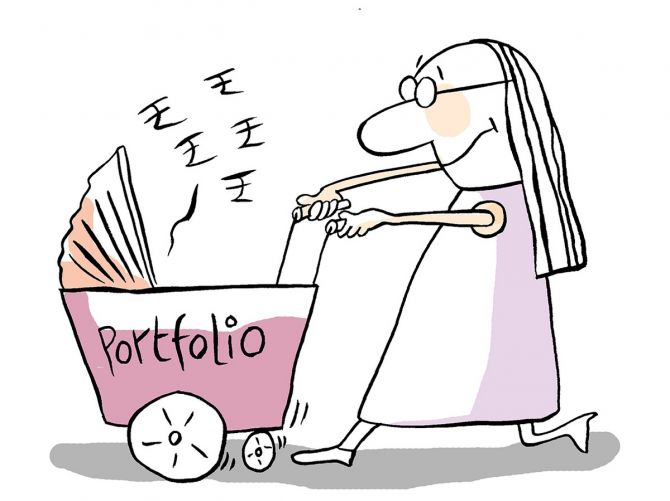'...which is possible through flexicap and multicap funds.'
'The latter has a better balance between large, mid and smallcap stocks.'

The largecap space has valuation comfort but the earnings momentum is stronger in the midcap and smallcap segments, says Trideep Bhattacharya, president and chief investment officer-equities, Edelweiss Mutual Fund.
In an interview with Abhishek Kumar/Business Standard in Mumbai, Bhattacharya says investors should go for a balanced portfolio among large, mid and smallcap stocks.
What are the key factors that will guide the market this year?&
Calendar 2024 will likely be a year of transitions. In 2023, the debate in the market was mostly around the completion of interest rate hike cycle, but this year it's about elections.
Almost 50 per cent of the top 20 nations are going into elections.
There will be a lot of political noise and we will have to navigate through it.
Secondly, we expect the global economic growth to bottom out this year and gradually enter the rebound phase in 2025.
The impact of the rate hikes will be evident this year.
We will also see a transition from inflation to disinflation.
Rates will start to come down and will have implications on asset allocation and portfolios.
India's reliance on domestic growth drivers -- as opposed to exports -- bodes well for the economy at a time when global growth is set to slow down.

IMAGE: Trideep Bhattacharya
Photograph: Kind courtesy Edelweiss Mutual Fund
How have you positioned your portfolios to stay on the right side of the market?
We are taking a bottom-up approach. The focus is on areas where there is earnings resilience and also upgrades.
One theme we have been positive on over two years now is the ongoing capex cycle.
The momentum may pick up further post the elections as the capacity utilisation of India Inc has surged beyond 75 per cent.
The second area is the power sector. India is gradually moving to a power deficit mode, and hence, companies in the sector will have strong earnings coming through.
The third area we like is real estate, which is in an upcycle.
While the builder stocks have already delivered, ancillary companies have further scope for upside.
On a net basis, earnings will remain resilient over the next 2-3 years.
Fourth area is defence, where companies' order books are full for a decade.
IT services is the dark horse as earnings estimates are basing out and demand is likely to pick up. NBFCs, too, are well placed, given the valuation comfort.
From the valuation standpoint, is there scope for further upside in these sectors?
Returns from here on will depend on earnings rather than valuation re-ratings.
At present, stocks are either at par with 10-year average or expensive, leaving little scope for a further valuation re-rating.
If we look at various segments of the market, there is some divergence.
There is some valuation comfort in the largecap space but the earnings comfort is in smallcaps and midcaps.
Also, PSUs are better valued than their private peers in most sectors. However, we are still not in a situation where stock picking has become difficult. Pockets of value remain.
Investor interest is shifting towards largecap and flexicap funds from smallcaps. Is that the right thing to do?
As mentioned previously, there is earnings momentum at one end and valuation comfort at the other.
In such a case, stock selection becomes the key rather than avoiding one segment of the market completely.
Investors should have a balanced portfolio, which is possible through flexicap and multicap funds. The latter has a better balance between large, mid and smallcap stocks.
Why did you choose to come out with a tech fund in the current scenario? How will it be different from the existing offerings in this space?
We see 2024 as a year when global growth bottoms out.
As the economies go into the rebound space, a global tech fund will be the right option to play on that.
Our scheme will invest across domestic IT firms, new-age companies and global firms.
This will allow investor exposure to both business-to-business defensive companies, the Indian tech sector, and the business-to-consumer companies in the AI, hardware and semiconductor space, which are only available in the overseas markets.
The fund will invest around 70 per cent of its portfolio in Indian equities and the rest in overseas markets.
Disclaimer: This article is meant for information purposes only. This article and information do not constitute a distribution, an endorsement, an investment advice, an offer to buy or sell or the solicitation of an offer to buy or sell any securities/schemes or any other financial products/investment products mentioned in this article to influence the opinion or behaviour of the investors/recipients.
Any use of the information/any investment and investment related decisions of the investors/recipients are at their sole discretion and risk. Any advice herein is made on a general basis and does not take into account the specific investment objectives of the specific person or group of persons. Opinions expressed herein are subject to change without notice.
Feature Presentation: Rajesh Alva/Rediff.com













 © 2025
© 2025